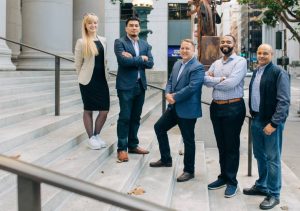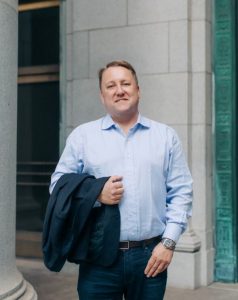 By Louis Lehot, business lawyer and partner at Foley & Lardner LLP in Silicon Valley, and formerly the founder of L2 Counsel, P.C.
By Louis Lehot, business lawyer and partner at Foley & Lardner LLP in Silicon Valley, and formerly the founder of L2 Counsel, P.C.
Many startups looking for venture capital could make their business more attractive by creating it within or moving it to a designated “Opportunity Zone.”
Today, opportunity zones around the United States have the potential to unleash a whole new class of tax-motivated investors to create or move successful high-tech companies to lower-income communities. Opportunity zones enable job creation and strategic investment in impoverished communities.
In 2017, Congress authorized a new federal Opportunity Zone program to encourage investment in America’s most economically challenged areas. The program was designed to provide tax breaks for investors, but emerging companies can now get involved. Today, more than 8,700 Opportunity Zones spread across the U.S qualify as low-income communities under the tax code. So, the program can ultimately recycle previously unattainable sources of capital into lower-income areas of the country.
According to the IRS, an opportunity zone is “an economically-distressed community where new investments, under certain conditions, may be eligible for preferential tax treatment.” In other words, investors in startups based in opportunity zones make a temporary deferral of accumulated capital profits – a tax benefit, which can eliminate capital gains. After five years, 10% of your basis is tax-deferred; after seven years, an additional 5% of the basis becomes tax-deferred and; after ten years, 100% of reinvested capital gains are permanently forgiven.
Benefits are limited to investments of capital gains in a “Qualified Fund,” or an investment vehicle with at least 90% of its assets invested in qualified opportunity zone property. Investors who purchase an interest in a Qualified Fund with means other than capital gains or who receive an interest in a Qualified Fund by performing services for the Qualified Fund will not be entitled to these tax benefits.
Qualified Property is property located in an Opportunity Zone or an equity interest in a U.S. company engaged in a qualified opportunity zone business (a “Qualified Business”). To be engaged in a Qualified Business, at least 70% of a company’s property must be used in an Opportunity Zone. In comparison, 40% of a company’s intangible property must be used in the active conduct of a business in an Opportunity Zone. Also, 50% of a company’s gross income must come from the active conduct of a business in the Opportunity Zone.
These days, the tax rules encourage Qualified Funds to invest in Qualified Businesses instead of directly operate businesses in Opportunity Zones. So, since Qualified Funds have until six months after they form to start investing in Qualified Property, new funds that intend to qualify as Qualified Funds are under the gun to find Qualified Businesses in which to invest. This provides an opportunity for a founder who operates a Qualified Business, whose stock will be that much more attractive to investors from a tax perspective.
The biggest obstacle to becoming a Qualified Business is the requirement that at least 50% of a company’s gross income comes from a business’s active conduct in an Opportunity Zone. When the program was established, it wasn’t clear how companies could demonstrate this. Over time, the IRS has established safe harbors that provide that this requirement will be met if: the management, operations, and property needed to generate 50% or more of the gross income of the business are located in an Opportunity Zone; or 50% or more of the services performed for the company by employees and contractors are completed in an Opportunity Zone.
With a goal to spark innovation in economically distressed areas of the U.S., Opportunity Zones located in New York and California are especially attractive right now. Businesses that wish to take advantage of these benefits should consult with an experienced attorney and tax advisers to develop a strategy for structuring their business model to capture the benefits from Opportunity Zones.

Louis Lehot is a partner and business lawyer with Foley & Lardner LLP, based in the firm’s Silicon Valley, San Francisco and Los Angeles offices, where he is a member of the Private Equity & Venture Capital, M&A and Transactions Practices and the Technology, Health Care, and Energy Industry Teams. Louis focuses his practice on advising entrepreneurs and their management teams, investors and financial advisors at all stages of growth, from garage to global. Louis especially enjoys being able to help his clients achieve hyper-growth, go public and to successfully obtain optimal liquidity events.
(C) 2020 Louis Lehot and L2 Counsel, P.C. Attorney advertising disclaimers:
(1) we are not your attorneys;
(2) this is not legal advice;
(3) past results achieved are not a guarantee of future performance; and
(4) depending on your jurisdiction of viewing, this is attorney advertising.


